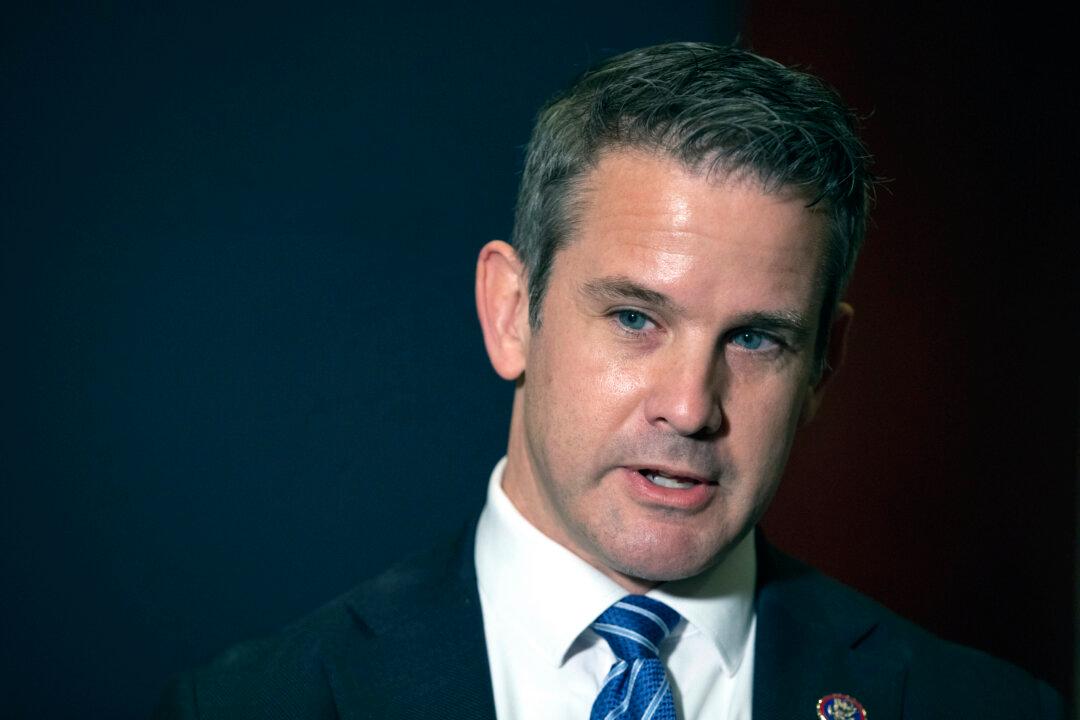Rep. Adam Kinzinger (R-Ill.) on Monday introduced legislation that would give President Joe Biden sweeping new powers to conduct and manage U.S. aid to Ukraine as the Russian invasion of the country moves into its ninth week of fighting.
Kinzinger’s Authorization for the Use of Military Force (AUMF), if passed, would grant Biden congressional approval to deploy U.S. ground troops if Russian President Vladimir Putin uses chemical, biological, or nuclear weapons.





